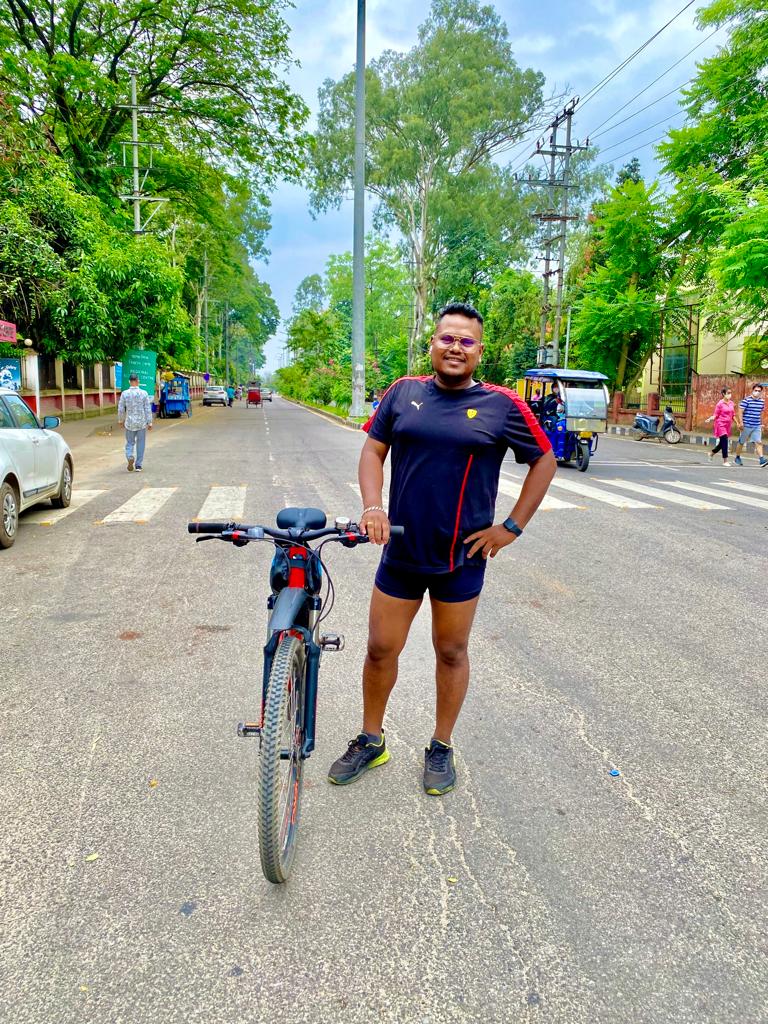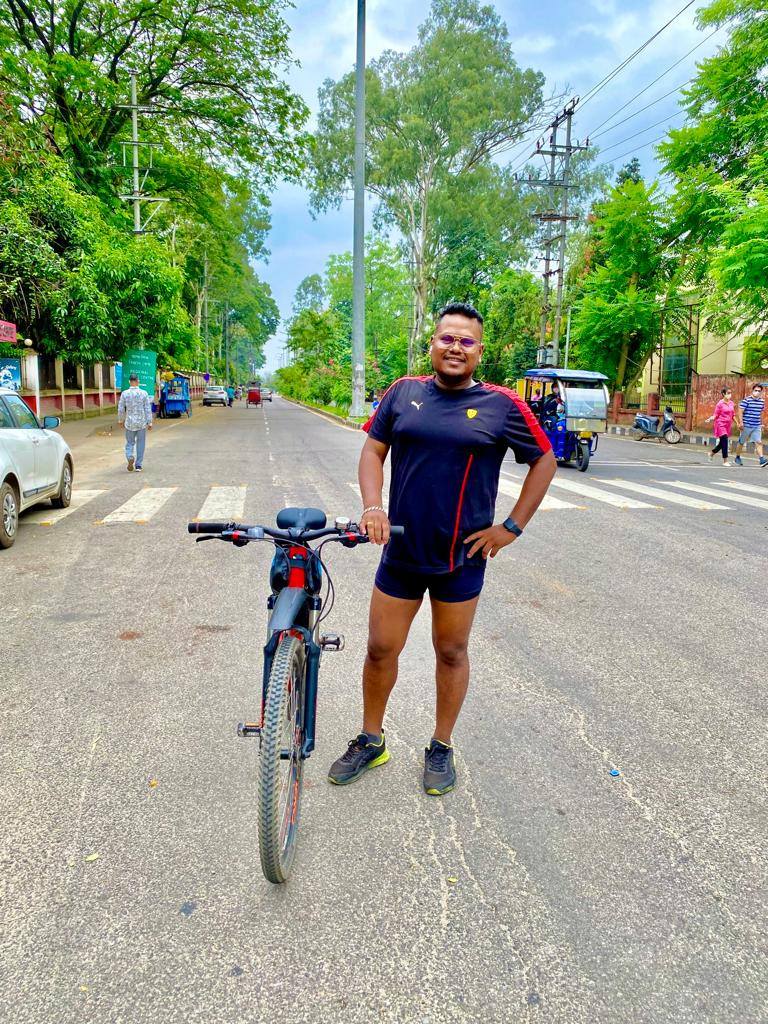rids.verify@gmail.com
+91-9555-581-581 | 9401677773

Cycling Training 10 Trips | Bicycle learning school in Guwahati
Cycling training trips can be a great way to improve your cycling skills, endurance, and explore new destinations. Here are a few steps to plan a cycling training trip:

1. Determine your goals: Decide what you want to achieve during your training trip. It could be improving your endurance, climbing skills, or simply enjoying long rides in a scenic location.
2. Choose a destination: Research and select a destination that offers suitable terrain and cycling routes for your training goals. Look for areas with good road conditions, bike-friendly infrastructure, and scenic landscapes.
3. Plan your itinerary: Determine the duration of your trip and plan your daily routes and distances accordingly. Consider factors such as elevation, difficulty level, and rest days to ensure a balanced training schedule.
4. Find accommodation: Look for accommodations that cater to cyclists, such as hotels or guesthouses with bike storage facilities and amenities for recovery. Consider staying near cycling routes or in cycling-friendly areas.
5. Pack the essentials: Make a checklist of essential items to pack, including cycling gear, tools, spare parts, nutrition, hydration, and appropriate clothing for various weather conditions. Don’t forget safety equipment like helmets and lights.
6. Train beforehand: Prepare your body for the training trip by incorporating regular cycling workouts into your routine. Focus on building endurance, strength, and practicing specific skills like climbing or descending.
7. Consider hiring a guide or joining a group: If you’re unfamiliar with the destination or prefer a structured training program, consider hiring a local guide or joining a cycling group that offers guided training trips. They can provide route guidance, coaching, and support.
8. Stay safe: Prioritize safety during your training trips. Follow local traffic laws, wear appropriate safety gear, and be aware of your surroundings. Carry identification, emergency contact information, and have a plan in case of any unforeseen circumstances.
9. Enjoy the experience: While training is important, remember to enjoy the experience and take in the surroundings. Take breaks to explore the area, try local cuisine, and interact with other cyclists or locals.
10. Track progress and learn: Keep a record of your training rides, distances, and improvements. Reflect on your experiences and learn from them to continuously improve your cycling skills.
Remember to consult with a healthcare professional or a cycling coach to ensure your training trip aligns with your fitness level and goals. Enjoy your cycling training trip and have a fantastic time exploring new places on your bike!







